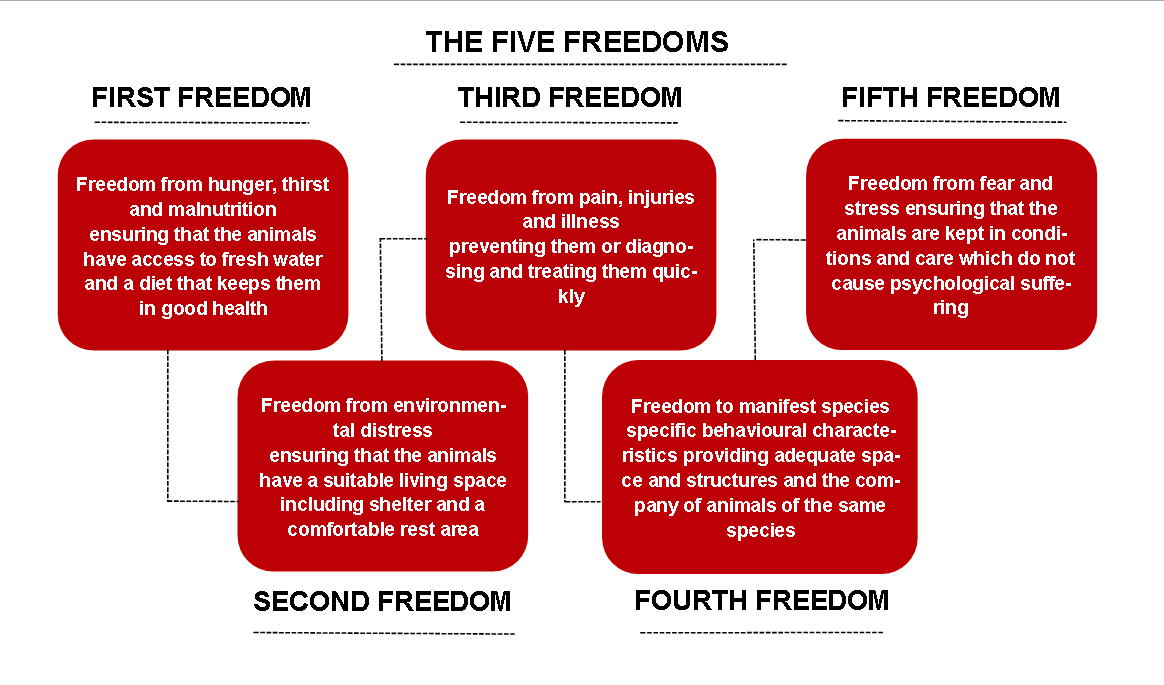Animal Welfare is a relevant area for the Company, also in line with the growing sensitivity of clients and consumers towards this issue topic.
MARR aims to make products of animal origin available which, in addition to being safe from a hygienic-sanitary point of view and in terms of traceability, come from production chains that respect the principles of animal welfare.
The principles and criteria for animal welfare are an integral part of the supply requirements and included in the contracts stipulated with suppliers.
MARR does not directly manage any supply chain of animal origin, however it obliges its suppliers to comply with the legislation in force on animal welfare and favors the progressive implementation of specific criteria in addition to the minimum standards established by legal requirements.
For animal welfare, good breeding practices are required, as well as adequate housing, hygiene, nutrition and health conditions.
Farms and management systems must meet the needs of the animals, in compliance with the "Five Freedoms" listed in the 1965 Brambell Report and taken up by the "Farm Animal Welfare Council" of 1979.

MARR has put in place a plan of inspections in order to assess compliance with the animal welfare standards subscribed by the suppliers, also making use of the collaboration of control and certification bodies operating at an international level in the sector.
In this context, MARR has defined a specification for animal welfare to be applied in the supply chain, obtaining certification for the laying hens supply chain and the national one for broilers.
MARR believes that the hens confinement in cages, although carried out in compliance with current legislation, is a harmful practice for animal welfare, therefore it has decided to suspend the marketing of eggs and egg products from cage and combined breeding systems by 2025.
The transition toward
cage-free breeding systems for eggs used as ingredient in the private label
products has been anticipated to October 2024.
MARR also carries out awareness campaigns aimed at Customers to promote the use of eggs and egg products from barn and organic farms.
MARR's commitment for the protection of fish resources in the seas of the whole world is to encourage and promote fishing activities that are ecologically and socially sustainable:
MARR’s commitment towards animal welfare in the seafood sector alsoinvolves aquaculture and fish farming.
MARR includes in its range seafood products obtained using sustainable farming methods and produced in respect of the welfare of the fish used.
In accordance with the plan for controlling the “Sustainable seafood chain”, in 2021 MARR has expanded its supervisory activities to suppliers in the fish farming sector by the end of 2022, ensuring that the animal welfare criteria defined for fish are respected, especially those concerning:
Crustaceans, such as crabs, lobsters and lobsters, have a complex behavior and appear to have some degree of awareness, so they may experience pain and stress.
MARR has identified, for several years now, the correct management methods for live crustaceans in all stages of marketing, from receipt to sale, in order to keep the animals in good health while avoiding stressful conditions.
The animals are kept in special aquariums which, in terms of size, capacity, temperature range and salinity, are suitable for the physiological needs of the species hosted. The number of animals in the tank is such as to avoid overcrowding. The time of detention in aquariums is limited to a minimum, so as not to jeopardize their well-being.
Furthermore, an information and awareness campaign has been activated for MARR Customers to avoid exposing live animals on ice, immersing them in boiling water and adopting adequate slaughtering techniques.